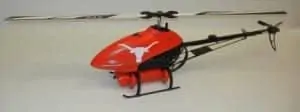
Adaptive Flight, Inc. is working with the University of Texas Radionavigation Laboratory under an ongoing project to test whether it is feasible to take over an Unmanned Aerial Vehicle (UAV) by spoofing the GPS signal. GPS spoofing is a technology by which a person can modify the position of a UAV without proper authorization. One motivation for this project was a recent claim by Iran of capturing a US spy drone by similar means. Initial testing at White Sands Missile Range proved the feasibility of remotely taking over an unprotected UAV in ideal conditions.
“The growing dependence of critical civil infrastructure on GPS–for transportation, communication, energy distribution, and banking and finance–makes civil GPS spoofing not only an economic and safety threat but also a matter of national security,” said University of Texas Assistant Professor Todd Humphreys, the Principal Investigator for the program.
Dr. Humphreys and his students, through four years of general GPS security related research, have created sophisticated software that allows special GPS spoofing hardware to override the authentic GPS signals with counterfeit signals. These counterfeit signals can, in turn, be sent to an operating UAV. Many UAVs rely on GPS for guidance and navigation, and counterfeit signals, in theory, could be used to manipulate a UAV to a desired location. This same security vulnerability applies to many other GPS-reliant systems as well, including manned aviation, automotive navigation, and even financial transactions.
“Adaptive Flight is proud to be working with Dr. Humphreys and his team in their efforts to address GPS system vulnerabilities due to GPS spoofing,” says Adaptive Flight’s CEO Wayne Pickell. ”We recognize the vulnerability of a UAV relying on GPS, especially in the presence of GPS spoofing or jamming. That is why all Adaptive Flight products come equipped with our patent pending GPS-denied operational mode, allowing for safe operation of our vehicles in all mission situations.”
For the White Sands test, the GPS-denied mode was turned off as the intent of the test was to have a UAV configured to rely on GPS. Adaptive Flight’s GPS-denied technology removes the system’s reliance on GPS for navigation, seamlessly transitioning control of the system without effecting the performance or the mission.
During the test in White Sands, New Mexico in June, the team was able to override the true GPS satellite signals with fake GPS signals sent to an Adaptive Flight Hornet Mini UAV, causing it to change its behavior. Representatives from both the FAA and DHS were present during the test to witness the spoofing of the UAV, therefore validating the theory that it is possible to change the flight path of a UAV by spoofing GPS. “We’re raising the flag early on so there is ample opportunity to fix this problem,” Humphreys said.


















